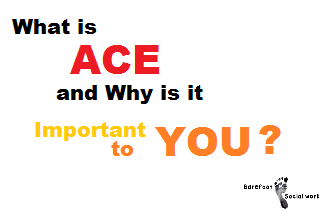|
Whitney was right in 1985 when she sang “the children are our future” but does the government believe this only applies if you’re from a certain background? I recently read an article by Dr. Charles Lewis where he asks if the US is witnessing a new wave of social Darwinism. Perhaps the UK should also reflect upon this question. What kind of future will the most vulnerable children in our society have unless we invest in them and their families both financially and emotionally?
The shock result in the UK general election was a wakeup call and we need to re-examine how social issues are discussed within the media if they are to be seen as relevant to the electorate. Labour are reportedly “soul searching” whilst the Liberal Democrats have launched a “fightback” but we should all be engaged in the debate. Many people believe that the core tenet of democratic voting is that we should vote for those that best represent our personal interests; however, we should all have a vested interest in the welfare of those living in poverty and with adversity, and we know that the socially excluded are less likely to vote and have their interests represented.
In my post on the 11 May 2015 I described how poverty is considered to be the best predictor of mental health disorders because it is a predictor of all the other things that are causal. I explained how adverse childhood experiences (ACE), many of which are compounded by poverty, are strongly related to adverse behavioural, health and social outcomes; creating a cyclic effect where those with higher ACE counts have higher risks of exposing their own children to ACEs.
These childhood experiences place a huge burden on the NHS, social care and judicial system. Surely it is plain to see that investing in services earlier will not only improve the life chances of the most vulnerable children in our society, but it will also alleviate some of the pressure on other services. The government needs to invest in an infrastructure that can be preventative as well as reactive. We would all benefit from it. If we are concerned about crime, we might want to look at the causes of crime. Childhood adversity is associated with adult criminality and it has been recommended in a 2013 study that to decrease criminal recidivism, treatment interventions must focus on the effects of early life experiences. Indeed, a UK ACE study found that preventing ACEs in future generations could reduce levels of violence victimisation by 51%, violence perpetration by 52% and incarceration by 53%. If we are concerned about the NHS, we might want to look at the causes of the negative health outcomes that place a burden on its service. Previous studies have found that there is a dose-response relationship between adverse childhood experiences and health outcomes. For a person with an ACE score of four or more, the relative risk of chronic obstructive pulmonary disease was around two and a half times that of someone with an ACE score of zero. For hepatitis, it was also two and a half time times. A person with an ACE score of seven or more had triple the lifetime risk of lung cancer and three and a half times the risk of ischemic heart disease. In 2014 a Bulletin of the World Health Organization described how people in the UK with at least four adverse childhood experiences were at significantly increased risk of many health-harming behaviours. They said modelling indicated that prevention of adverse childhood experiences would substantially reduce the occurrence of many health-harming behaviours. But that's not all... they also found that preventing ACEs in future generations could reduce levels of early sex (under 16 years) by 33%, unintended teen pregnancy by 38%, smoking by 16%, cannabis use by 33%, heroin/crack use by 59% and poor diet by 14%. Until we see political and social reform Social Workers can help the vulnerable groups they support by working in preventative ways, rather than concentrating solely on crisis intervention; act as advocates for people that encounter injustices; empower people to become involved in decisions that affect them; challenge oppressive working practices; and most importantly, advocate for political and social change. It is important for social workers to engage in the current debate about how to prevent harmful childhood adversity and challenge structural inequalities that compound them. If you would like to learn more, I've added some recommended books at the end of this post. You should also take a look at this video of Mark Bellis at the World Health Organisation:
0 Comments
Your comment will be posted after it is approved.
Leave a Reply. |
AuthorI'm a Qualified Children's Social Worker with a passion for safeguarding and family support in the UK. Archives
August 2016
Categories
All
|



